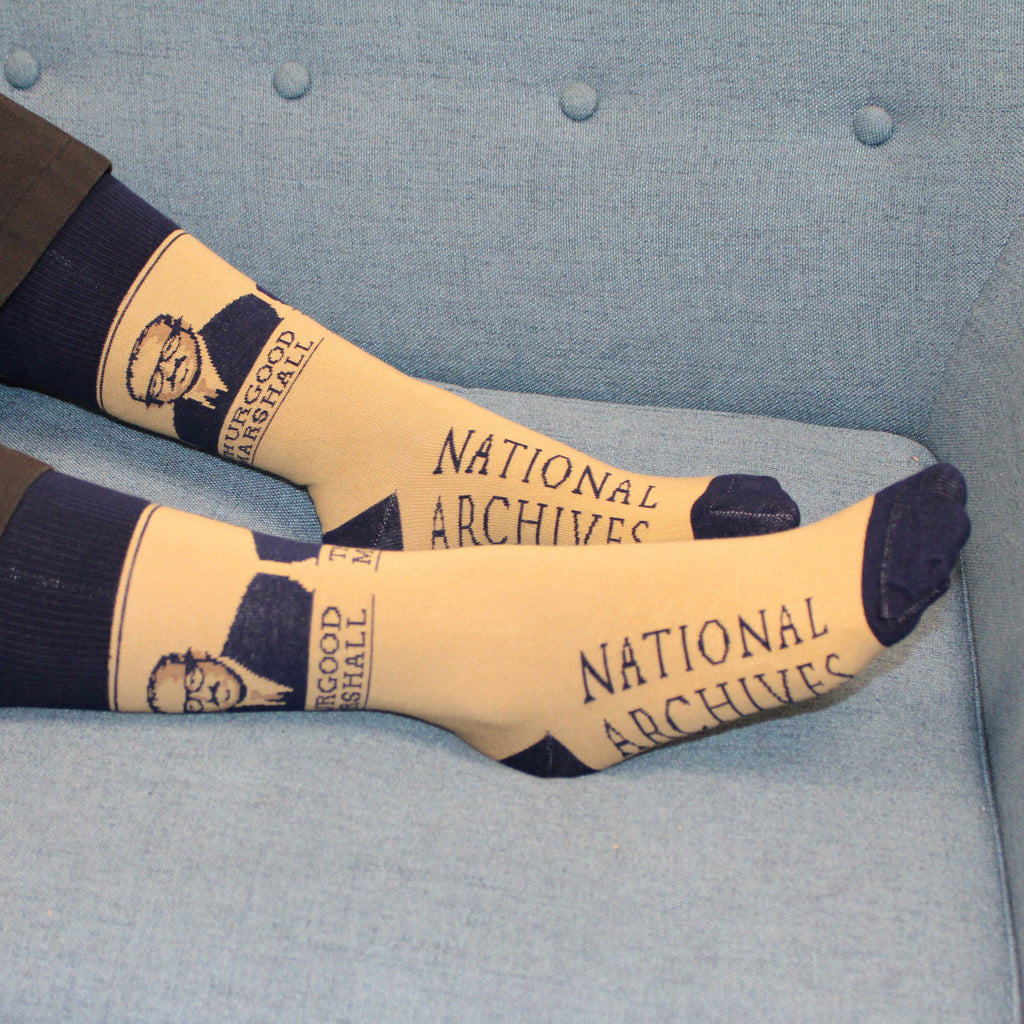
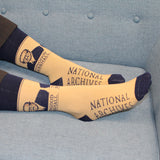
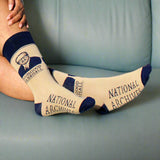

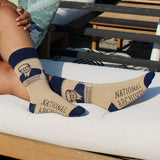

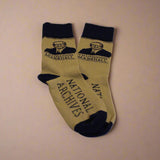
Thurgood Marshall Socks
- National Archives Store Exclusive
- Made in the U.S.A.
- Toe seam
- One size fits most (ladies up to size 12, men up to size 10.5)
- 70% cotton, 28% polyester, 2% elastic
- Machine wash cool, inside out, tumble dry
-
Our light brown crew socks with navy accents feature a striking portrait of the late Associate Supreme Court Justice Thurgood Marshall. Made of high-quality combed cotton to ensure both comfort and durability. The navy blue accents around the cuffs, heels, and toes add a touch of elegance, while the socks' overall design pays homage to a trailblazing figure in American history.
National Archives branding on the foot symbolizes Marshall's contributions to uphold the Constitution, which is held in trust for the American people at the Archives in Washington, D.C. This unique design makes them not only comfortable to wear but also a stylish way to show appreciation for Marshall's legacy.
-
On June 13, 1967, President Lyndon B. Johnson nominated Thurgood Marshall to be the first African American justice of the Supreme Court of the United States.
After graduating from Howard University Law School in 1933, Marshall worked in private practice in his home town of Baltimore. In one of his early cases, he represented the local chapter of the NAACP in a suit challenging the University of Maryland Law School’s segregation policy. Marshall himself had been a victim of that policy when he applied to the program and was turned down because he was Black. After winning the case, Marshall joined the NAACP national staff in New York in 1936. For the next 25 years, he led the legal challenge to end racial segregation in U.S. 02567_2009_001_PR Brown v. Board of Education, Order for Appearance, Thurgood Marshall, 12/3/1951 (National Archives Identifier 301670).
By mounting a series of federal court cases, Marshall set out to reverse the “separate but equal” doctrine established by the Supreme Court’s Plessy v. Ferguson (1896) decision. Marshall’s most famous segregation case was Brown v. Board of Education of Topeka (1954), in which the Supreme Court struck down “separate but equal” in public education, ruling that state-sanctioned segregation in public schools was a violation of the 14th Amendment. In the 32 cases he argued before the Supreme Court, Marshall won 29.